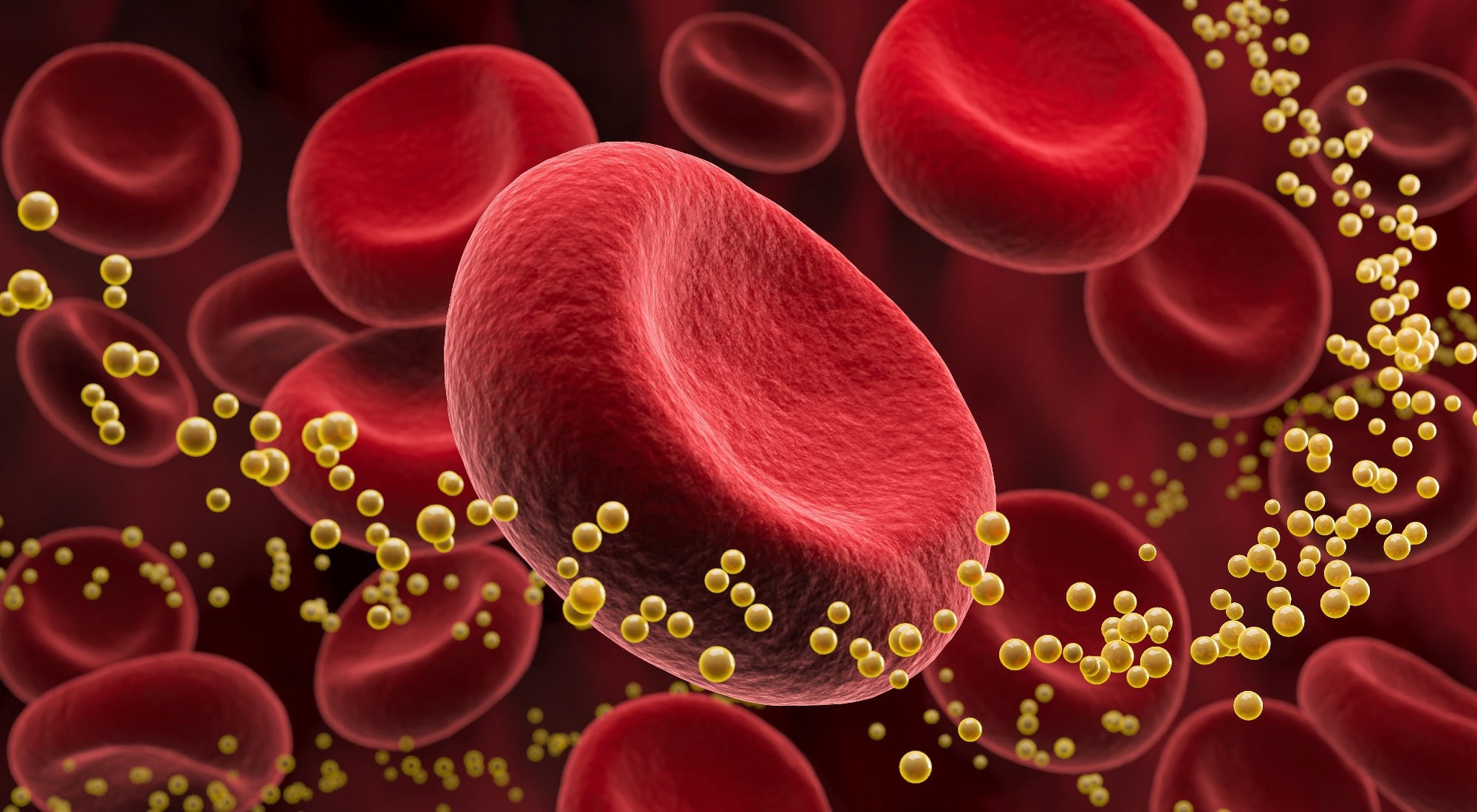A large-scale study of over 180,000 veterans reveals a clear link between high dietary cholesterol and increased heart attack risk—challenging long-standing debates on diet and cardiovascular health.
 Study: Dietary Cholesterol and Myocardial Infarction in the Million Veteran Program. Image Credit: Anusorn Nakdee / Shutterstock
Study: Dietary Cholesterol and Myocardial Infarction in the Million Veteran Program. Image Credit: Anusorn Nakdee / Shutterstock
In a recent study published in the Journal of the American Heart Association, researchers assessed the relationship between dietary cholesterol intake and the risk of myocardial infarction (MI) among United States (U.S.) veterans participating in the Million Veteran Program (MVP).
Background
Every year, approximately 805,000 Americans experience an MI, with nearly 200,000 of these being recurrent events. Coronary artery disease (CAD) remains the leading cause of mortality in the U.S., and diet is a key modifiable factor influencing cardiovascular risk. The Dietary Approaches to Stop Hypertension (DASH) and Mediterranean diets, which are low in cholesterol, have been associated with reduced cardiovascular events. Conversely, high dietary cholesterol intake has long been debated as a contributing factor to CAD. While some studies suggest a strong association between dietary cholesterol and increased risk of MI, others report no significant relationship. The conflicting evidence necessitates further investigation into the role of dietary cholesterol in cardiovascular health.
About the Study
The present study collected data from 180,156 veterans with comprehensive dietary intake information. The study population was predominantly male (90%) and White (80%), which may affect the generalizability of the findings. To minimize confounding, participants with pre-existing cancer or cardiovascular disease at baseline were excluded. Dietary cholesterol intake was assessed using a validated semi-quantitative food frequency questionnaire.
Information on demographics, medical history, smoking status, physical activity, and medication use was obtained from self-reported surveys and electronic health records. Incident MI cases were identified using validated algorithms incorporating International Classification of Diseases (ICD) codes, natural language processing, and medical record reviews.
Cox proportional hazard models were employed to estimate the relative risk (RR) of MI associated with dietary cholesterol intake, adjusting for age, sex, smoking status, alcohol intake, total calorie intake, physical activity, body mass index, family history of heart disease, cholesterol-lowering medication use, and adherence to the DASH diet. Both linear and nonlinear dose-response relationships were evaluated. Sensitivity analyses were conducted to assess the impact of potential confounders, including saturated fat intake and statin use.
Study Results
The mean follow-up period among 180,156 veterans was 3.5 years. Participants consuming more than 300 mg/day of dietary cholesterol had a 15% increased risk of MI compared to those consuming less. A dose-response relationship was observed, where each additional 100 mg/day of dietary cholesterol intake was associated with a 5% higher risk of MI (RR, 1.05; 95% Confidence Interval [CI], 1.02-1.08).
Dietary cholesterol intake varied among participants. Those in the highest quartile (≥400 mg/day) had a higher prevalence of obesity, lower adherence to the DASH diet, and a greater likelihood of statin use. The primary dietary sources of cholesterol were eggs, poultry, and red meat. Increased cholesterol consumption correlated with lower consumption of fruits, vegetables, and whole grains.
Adherence to the DASH diet significantly modified the association between dietary cholesterol and MI risk. Veterans with poor adherence to the DASH diet and high cholesterol intake (≥300 mg/day) had a 36% higher risk of MI compared to those following a high-quality diet with lower cholesterol intake. Individually, poor DASH adherence and high cholesterol intake were each associated with approximately a 20% increased risk of MI, though the combined risk was not necessarily additive beyond what was expected from each individual factor.
Secondary analyses explored the potential interaction between dietary cholesterol intake and statin use. Among statin users, high dietary cholesterol intake was associated with a 15% increased MI risk, while non-statin users exhibited a 23% increased risk. However, the statistical interaction was not significant (p = 0.82), suggesting that the difference in risk between these groups could be due to chance rather than a true modifying effect of statin use.
Adjustments for saturated fat intake slightly attenuated the risk estimates, but the association remained significant, indicating an independent effect of dietary cholesterol on MI risk. Further sensitivity analyses confirmed the robustness of these findings. Adjustments for dietary intake of fruits, vegetables, whole grains, and polyunsaturated fatty acids did not materially alter the results, reinforcing the reliability of the observed relationship. The findings align with prior studies indicating that diets rich in cholesterol contribute to increased cardiovascular risk.
Conclusions
To summarize, this large-scale cohort study provides strong evidence that higher dietary cholesterol intake is associated with an increased risk of myocardial infarction among U.S. veterans. The observed dose-response relationship underscores the importance of dietary modifications to mitigate cardiovascular risk. While findings support limiting cholesterol intake, particularly from sources such as eggs and red meat, it is also essential to consider overall dietary patterns, including fruit, vegetable, and whole grain consumption, to optimize heart health. Additionally, adherence to heart-healthy dietary patterns, such as the DASH and Mediterranean diets, may further protect against MI. These findings support current dietary guidelines that recommend limiting cholesterol consumption to improve cardiovascular health.